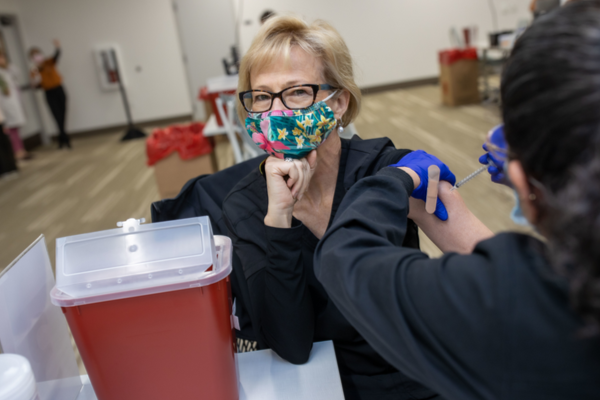Jan 27, 2021
When Rev. Ann Helmke, who leads San Antonio’s Faith-Based Initiative, invited Kemp to sign an interfaith pledge to publicly take the COVID-19 vaccine, he was quick to say yes. Part of the pledge involves sharing a selfie of the vaccination process on social media. “The importance of people of faith speaking to their congregations, their constituency, their area of influence, cannot be overstated,” said Kemp, who received his first vaccine dose on Dec. 18 and shared a photo of it on Facebook.
Read the Full Article

Already a subscriber? Login
